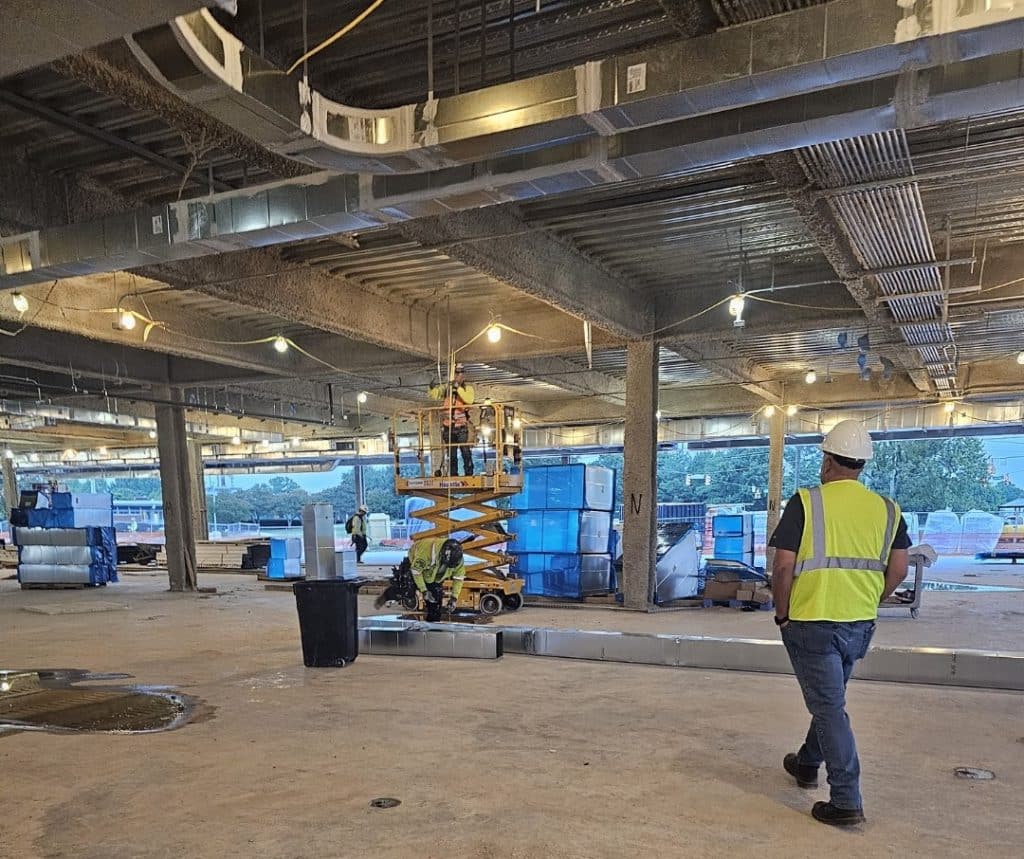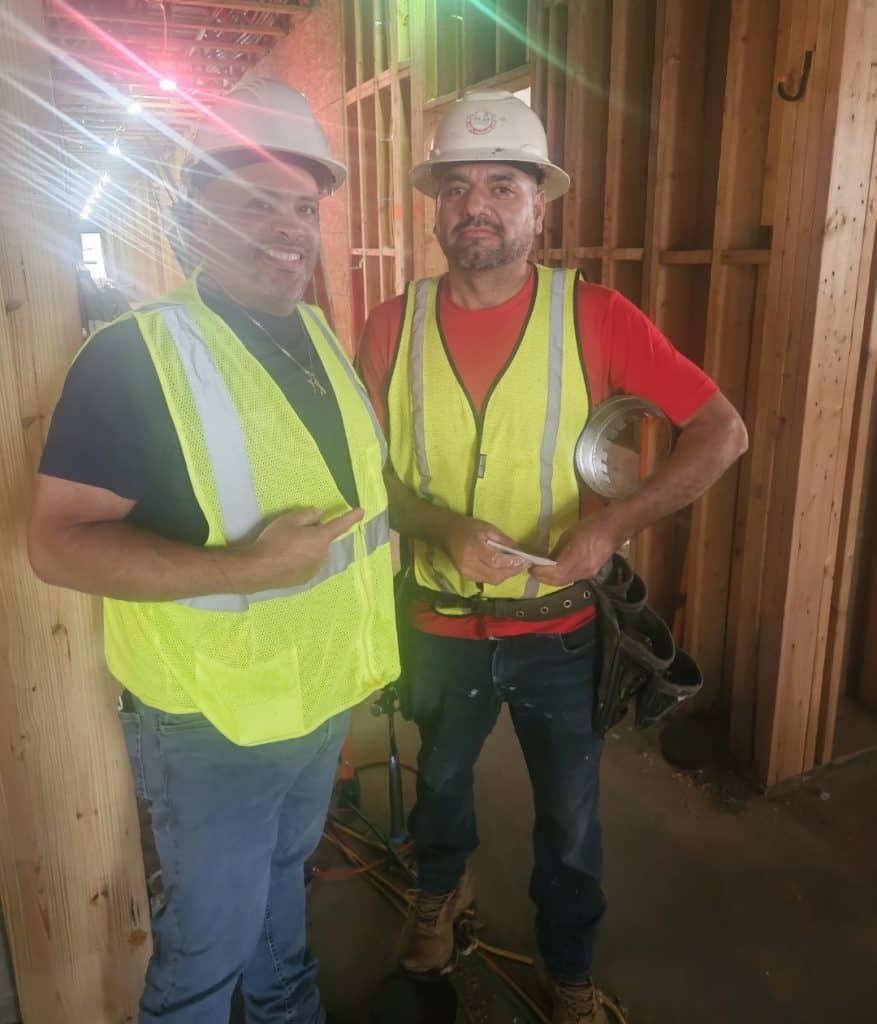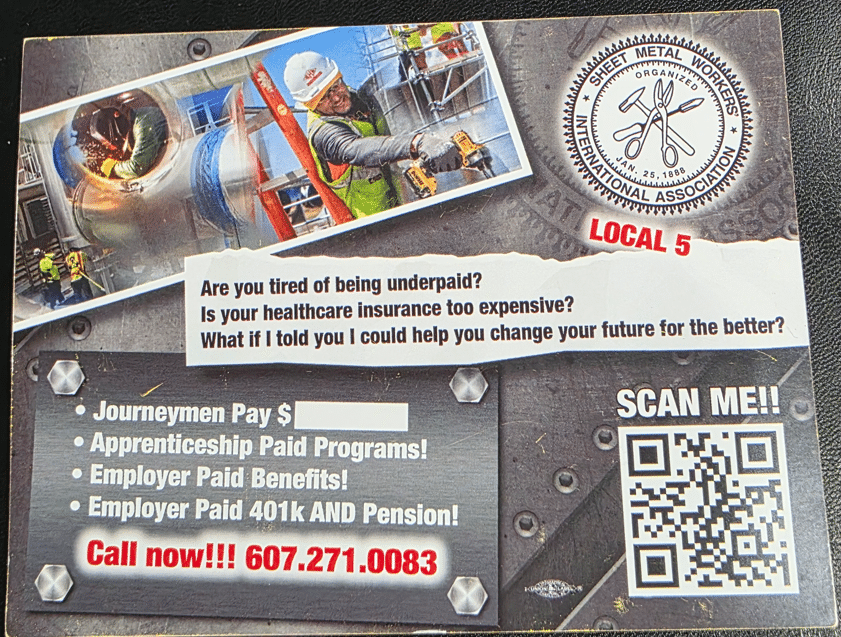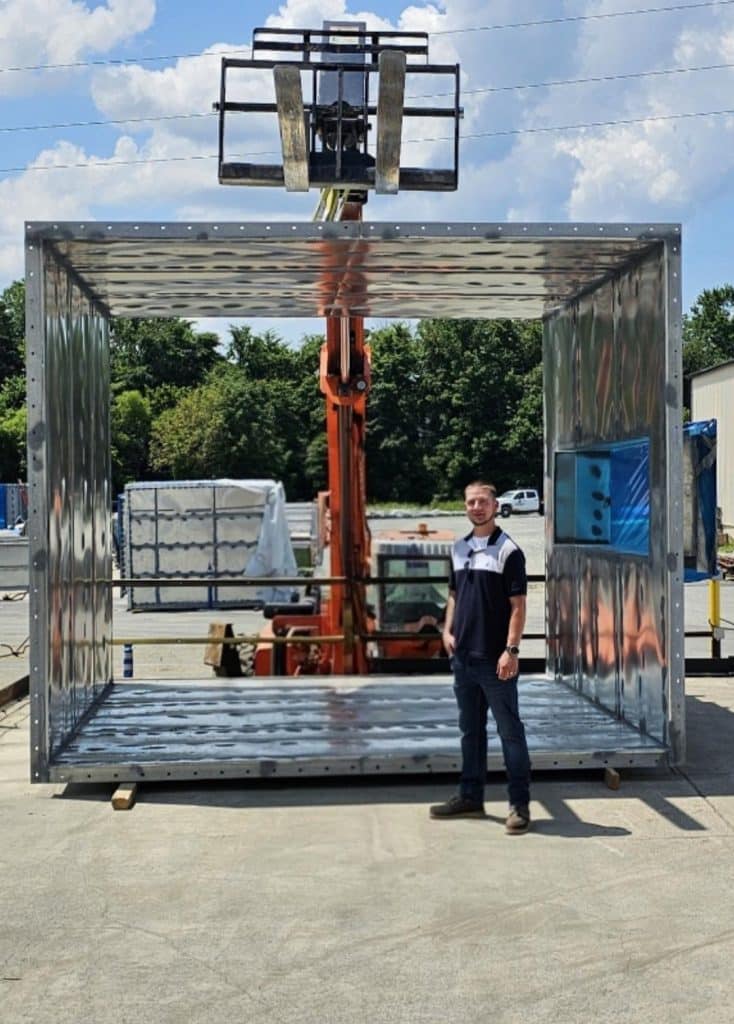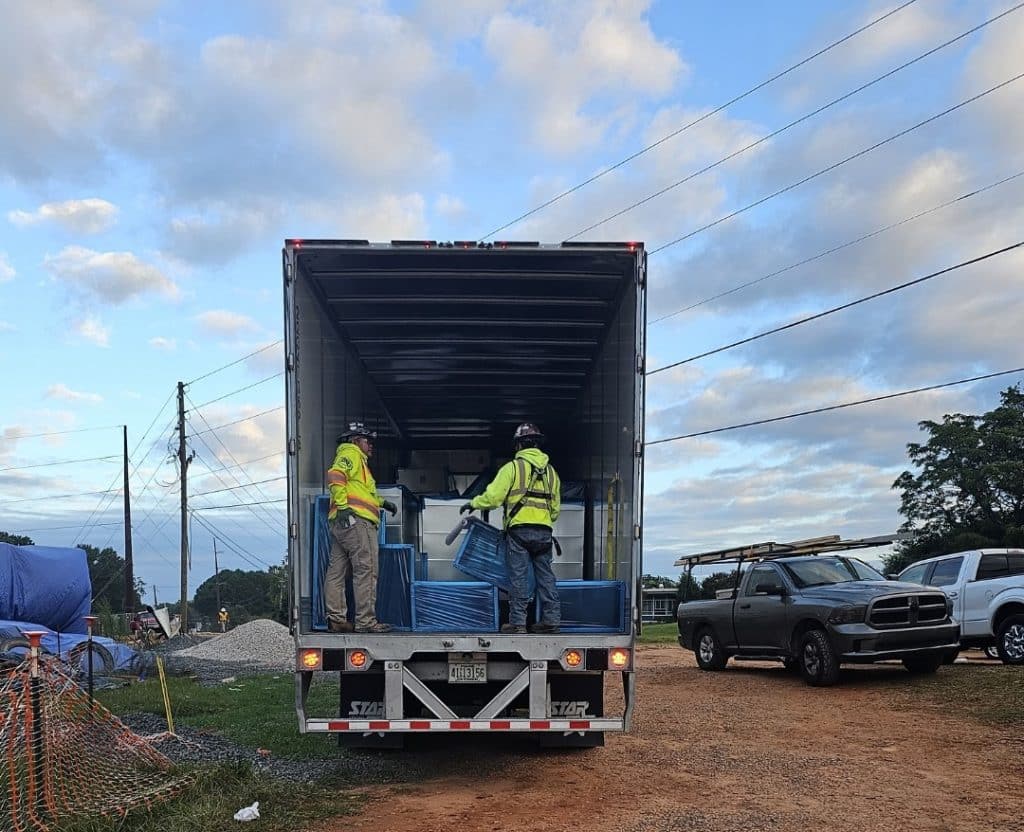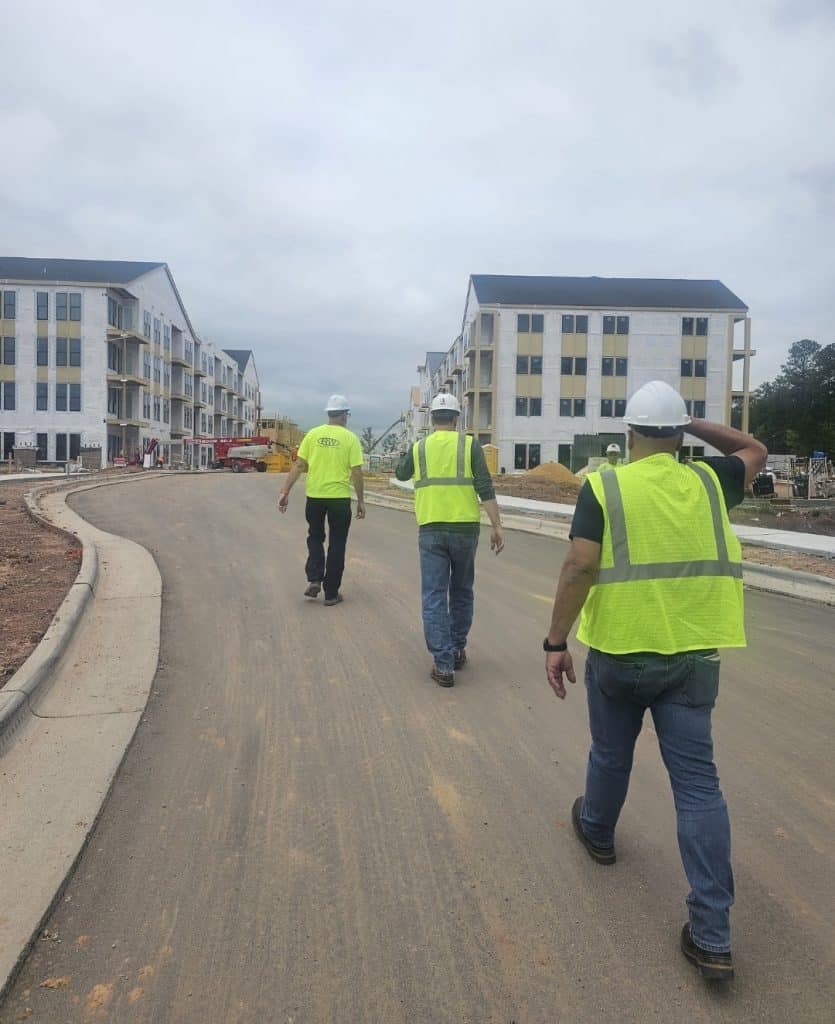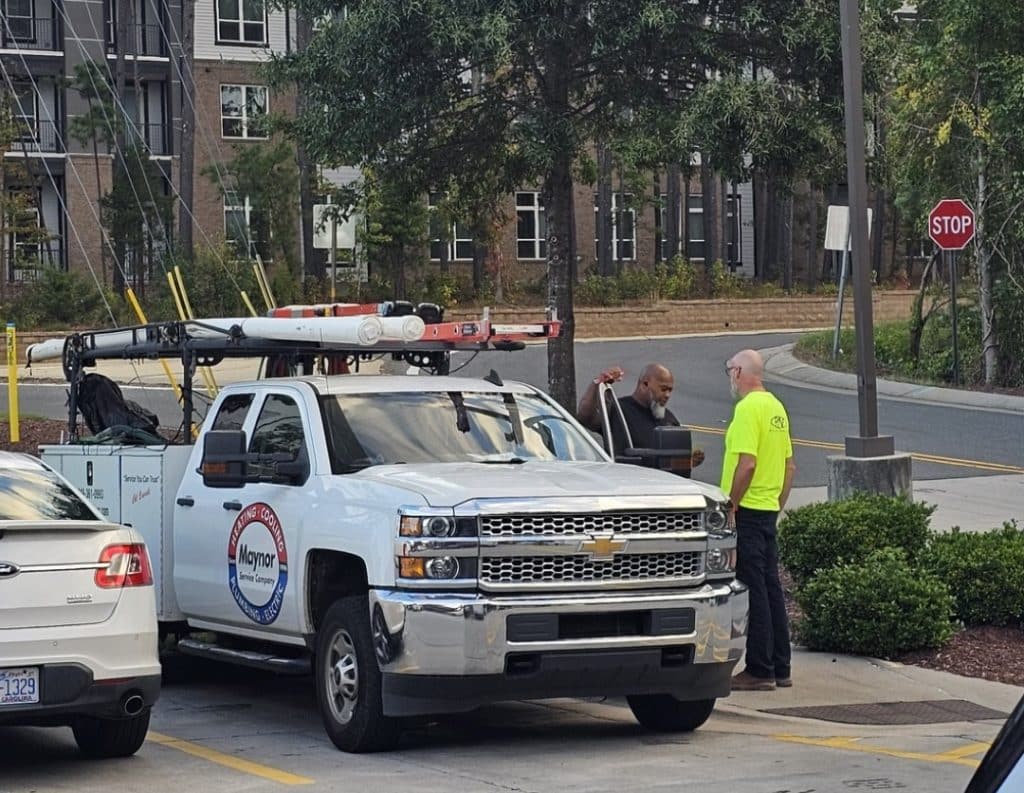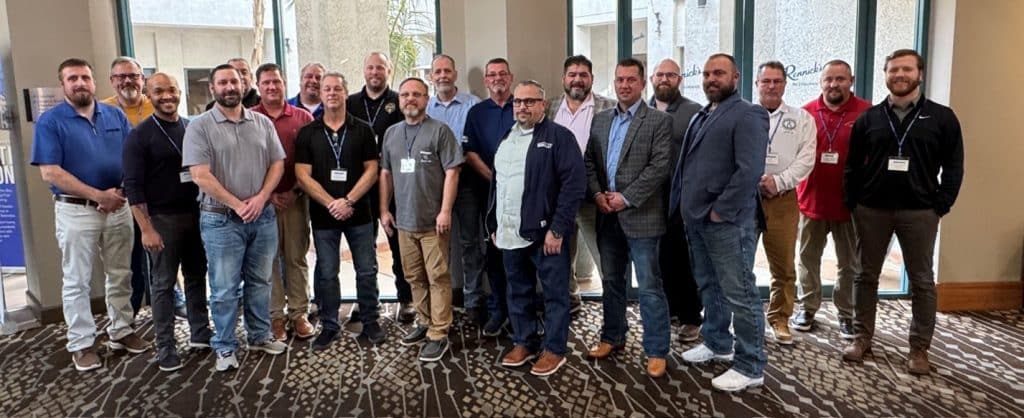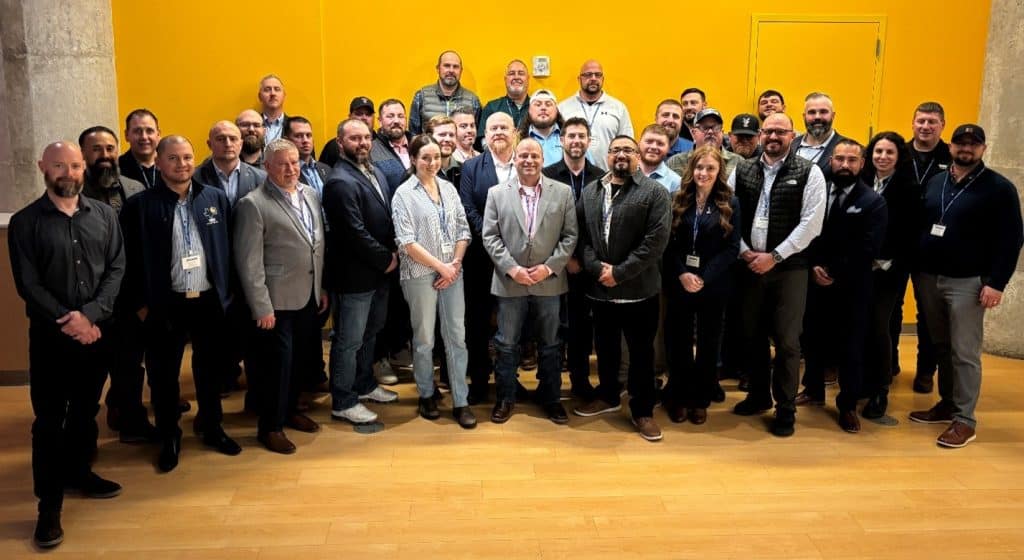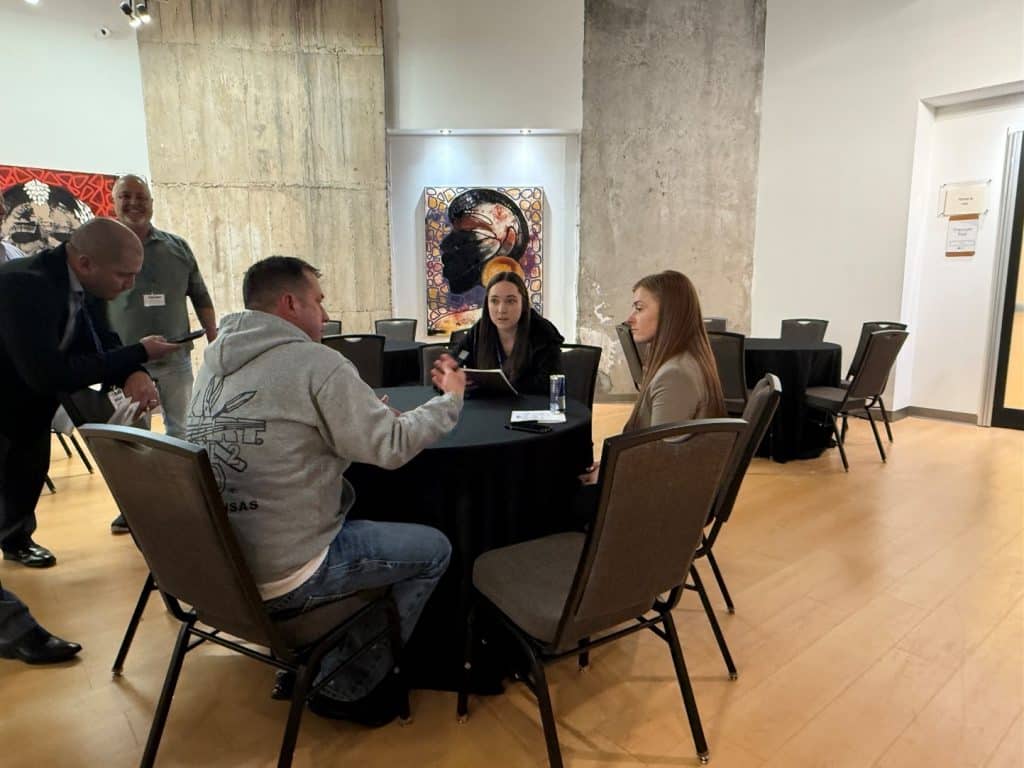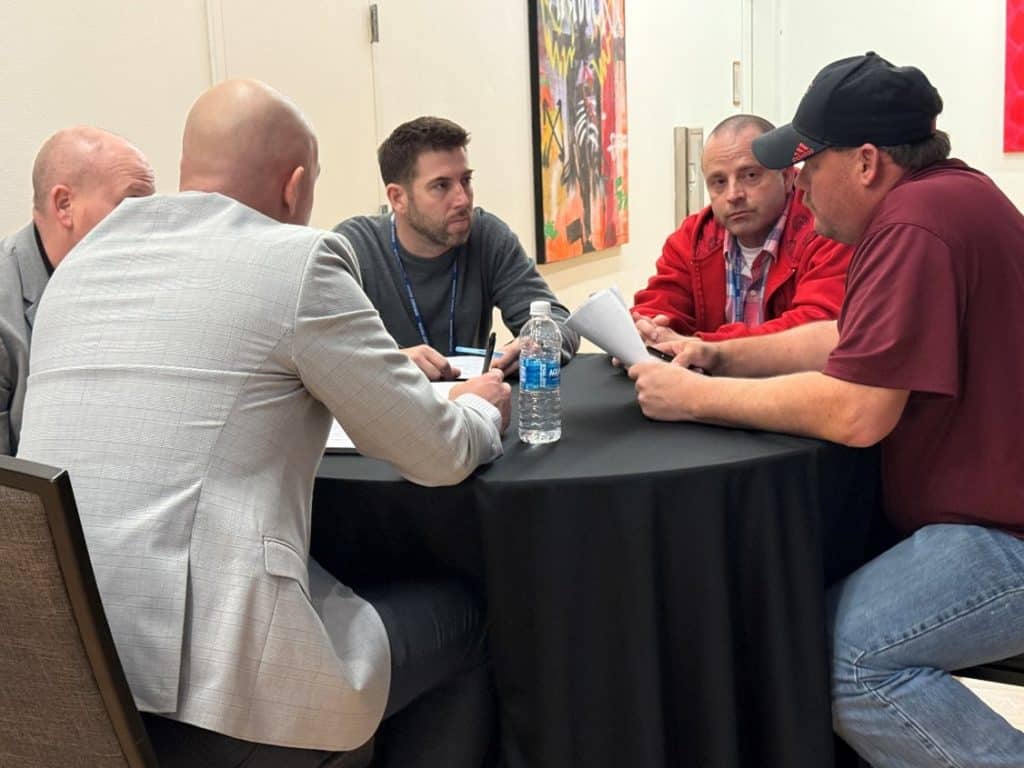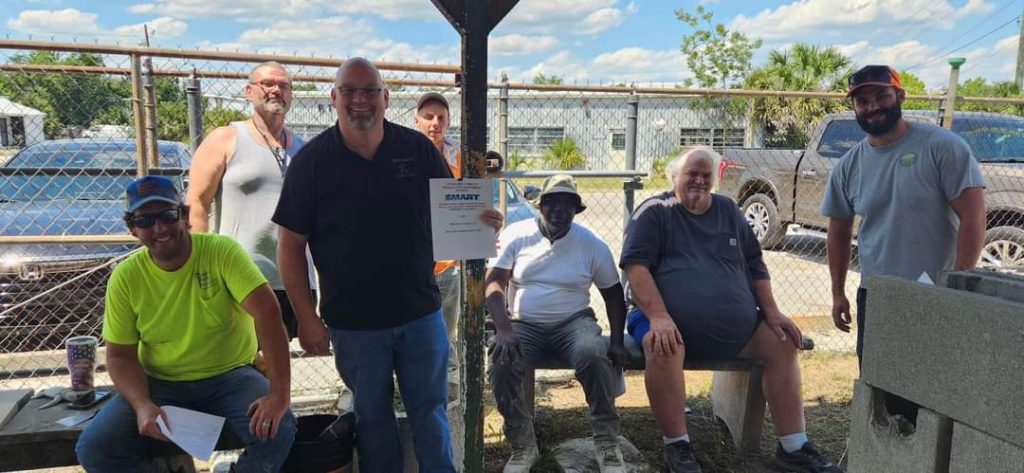In so-called “right-to-work” states like Florida — the home of commuter rail service Tri-Rail — union workers are often forced to overcome multiple obstacles during contract negotiations. On the one hand, they’re trying to make gains on pay, benefits and working conditions. On the other, they need to surmount potential division between the workers who have signed up for the union and those who opt out of representation.
But that wasn’t a problem at Tri-Rail’s Hialeah, Florida, facility during the most recent round of contract negotiations. The tireless work of SMART Mechanical Department Local Chairpersons Luis Roves and Raul Barnat ensured every single worker on the property signed up to be a member of SMART-MD — and when the time came to vote on a new contract, every single SMART-MD member cast a vote. The result: 100% ratification.
“Everyone was on the same page,” said SMART-MD General Committee 2 Directing General Chairperson John McCloskey, who negotiated the agreement alongside International Rep. Rob Shanahan. “We had one unified message, and that made it easy to negotiate as one voice and win the contract the members wanted.”
SMART-MD first organized and negotiated a contract at the Hialeah facility in 2015. At the time, 15 of the 28 Tri-Rail employees signed up for union representation.
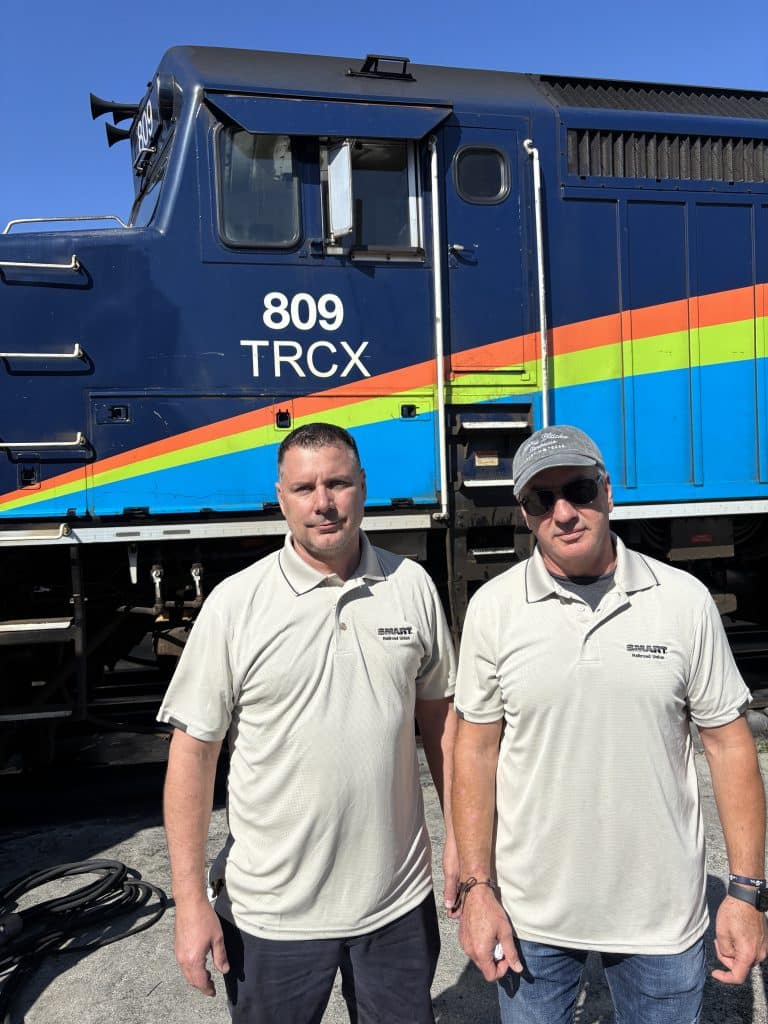
When ownership of Tri-Rail changed hands from Bombardier to Herzog Transit Services in 2019, SMART-MD ran another organizing campaign at the facility, with Roves and Barnet playing key roles. The two local chairpersons engaged every employee, including brand-new hires — explaining the union advantage and the importance of signing up with SMART-MD. Eventually, they established 100% union membership throughout the property.
“There is definitely a language barrier when I’m down in Miami,” said McCloskey, an Irish immigrant. An added difficulty for McCloskey and Shanahan: The vast majority of the Tri-Rail employees are of Cuban descent, mostly speaking English as a second language. “Luis and Raul are just so proactive. They kept it together in a right-to-work state. They fielded all the questions, all the concerns.”
The previous Tri-Rail contract was subject to renegotiation on July 1, 2024, with SMART-MD initiating discussions two months prior. With Roves and Barnat consistently in contact with Tri-Rail’s workforce, relaying their priorities to McCloskey and Shanahan, SMART-MD eventually reached a tentative agreement with the employer in February, with the unanimous, full-participation ratification vote taking place shortly after.
McCloskey paid tribute to Roves and Barnet’s industrious work on behalf of their fellow Tri-Rail employees, calling their effort a “great success.” He also noted how the negotiation process demonstrated our union’s values.
“At the end of the day, we serve our members no matter their background — we’re not going to let a language barrier get in the way,” he said. “That isn’t going to deter anyone in our organization from negotiating a good contract.”
